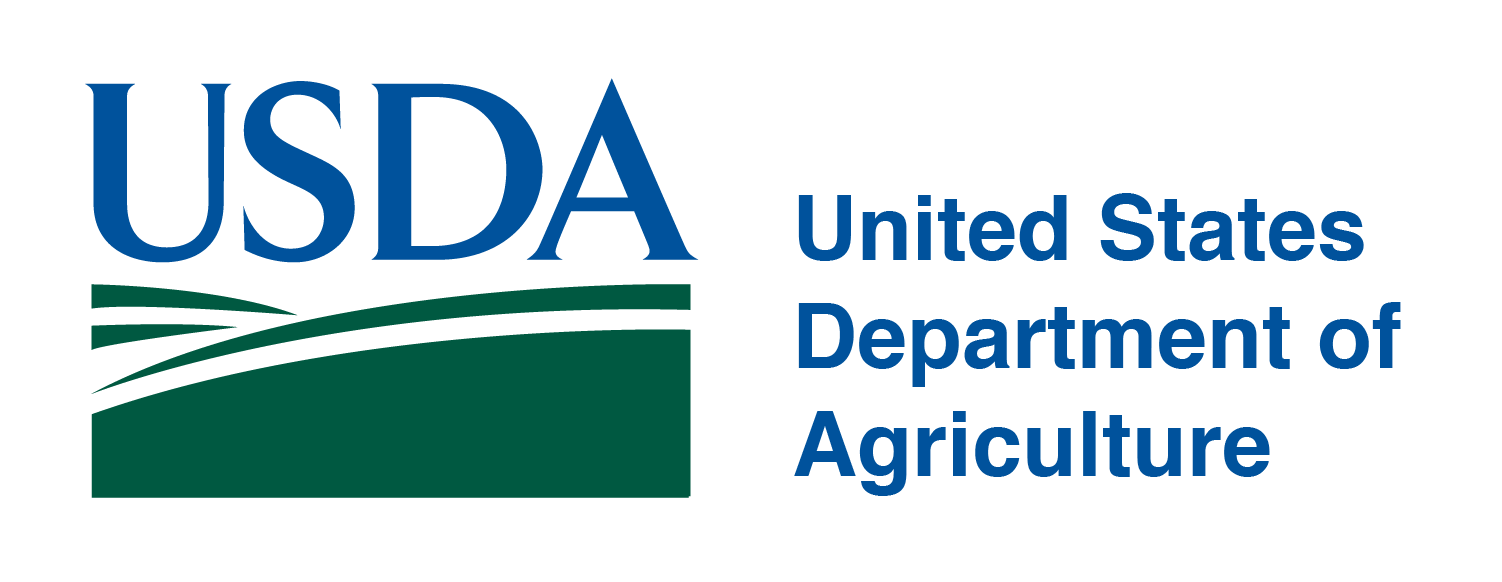- CMS: Medicare Program; Implementation of Prior Authorization for Select Services for the Wasteful and Inappropriate Services Reduction (WISeR) Model
- Public Inspection: CMS: Medicare Program: Implementation of Prior Authorization for Select Services for the Wasteful and Inappropriate Services Reduction Model
- CMS: Secretarial Comments on the CBE's (Battelle Memorial Institute) 2024 Activities: Report to Congress and the Secretary of the Department of Health and Human Services
- HHS: Patient Protection and Affordable Care Act: Marketplace Integrity and Affordability
- HRSA Announces Action to Lower Out-of-Pocket Costs for Life-Saving Medications at Health Centers Nationwide
- Public Inspection: HHS: Patient Protection and Affordable Care Act: Marketplace Integrity and Affordability
- Increased Risk of Cyber Threats Against Healthcare and Public Health Sector
- Eight Hospitals Selected for First Cohort of Rural Hospital Stabilization Program
- Announcing the 2030 Census Disclosure Avoidance Research Program
- CMS: Medicare Program; Hospital Inpatient Prospective Payment Systems for Acute Care Hospitals and the Long-Term Care Hospital Prospective Payment System and Policy Changes and Fiscal Year 2026 Rates; Requirements for Quality Programs; and Other Policy Changes; Correction
- CMS: Medicare Program; Hospital Inpatient Prospective Payment Systems for Acute Care Hospitals and the Long-Term Care Hospital Prospective Payment System and Policy Changes and Fiscal Year 2026 Rates; Requirements for Quality Programs; and Other Policy Changes; Correction
- CMS: Medicare and Medicaid Programs; Contract Year 2026 Policy and Technical Changes to the Medicare Advantage Program, Medicare Prescription Drug Benefit Program, Medicare Cost Plan Program, and Programs of All-Inclusive Care for the Elderly; Correction
- CMS: Medicare and Medicaid Programs; Contract Year 2026 Policy and Technical Changes to the Medicare Advantage Program, Medicare Prescription Drug Benefit Program, Medicare Cost Plan Program, and Programs of All-Inclusive Care for the Elderly; Correction
- CMS: Medicare Program; Prospective Payment System and Consolidated Billing for Skilled Nursing Facilities; Updates to the Quality Reporting Program for Federal Fiscal Year 2026
- CMS: Medicare Program; FY 2026 Hospice Wage Index and Payment Rate Update and Hospice Quality Reporting Program Requirements
USDA Will Pause Accepting Applications for the Inflation Reduction Act Funding under the Rural Energy for America Program

U.S. Department of Agriculture (USDA) Rural Development Under Secretary Dr. Basil Gooden announced that USDA will pause accepting Inflation Reduction Act (IRA) applications for the Rural Energy for America Program (REAP). IRA applications are those requesting federal grant funding of up to 50 percent of total eligible project costs. The last day to submit a new IRA application for Fiscal Year (FY) 2025 funding will be December 31, 2024, at 4:30 PM local time in the respective applicant’s time zone. This decision was made due to the continued overwhelming response to the funding opportunities made possible by IRA.
USDA will close the REAP FY 2025 IRA funding opportunity earlier than anticipated as over 3,000 applications have already been received, requesting more than twice the amount of the announced available funding. This decision will allow USDA time to dedicate the necessary resources and attention to the growing backlog of applications.
Additionally, USDA will not withdraw any FY 2024 IRA applications that have not been fully processed by December 31, 2024. The Agency will continue to process the remaining IRA FY 2024 applications and FY 2025 applications received by December 31, 2024.
Applications that are fully processed, complete and eligible will compete for available funding.
This decision does not affect FY 2025 applications submitted for Farm Bill funding. Farm Bill applications are those requesting federal grant funding of up to 25 percent of total eligible project costs. These applications can be submitted through March 31, 2025.
USDA anticipates accepting both REAP IRA and Farm Bill applications again starting on July 1, 2025, for Fiscal Year 2026 funding.
USDA appreciates your continued support and interest in the Rural Energy for America Program.
For any further inquiries regarding this announcement please contact your State Energy Coordinator.
If you would like to subscribe to USDA Rural Development updates, visit our GovDelivery subscriber page.
FISA Foundation Announces Funding for Access to Care
The FISA Foundation has announced a new request for proposals (RFP) to improve access to health care for people with disabilities in southwestern Pennsylvania. They will be funding grants up to $20,000 as part of a new initiative. The deadline to submit proposals is March 3rd. There is an informational session regarding the RFP on January 29th at 1pm via Zoom.
Click here for more information.
Click here to register for the informational session.
Leapfrog Honors Pennsylvania Leader as ‘Outstanding Healthcare CEO’
From Becker’s Hospital Review
Richard Anderson, longtime president and CEO of St. Luke’s University Health Network, is this year’s recipient of the Steven Schroeder Award for Outstanding Healthcare CEO from Costs of Care and The Leapfrog Group.
The award was established to celebrate “a hospital and/or health system CEO who has demonstrated courageous and ethical leadership addressing the twin issues of affordability and quality.”
Mr. Anderson has been at the helm of Bethlehem, Pa.-based St. Luke’s for nearly 40 years, steering its transformation from a community hospital to a 15-campus system, according to a Dec. 17 news release from the health system. He has also led efforts to expand the network’s education programs, including the establishment of Temple St. Luke’s School of Medicine, the only medical school campus in Pennsylvania’s Lehigh Valley region. St. Luke’s is a nonprofit, integrated system with more than 350 outpatient sites and a workforce comprising more than 20,000 employees.
The health system consistently earns top accolades in major quality and safety programs, including Leapfrog Safety Grades and CMS Hospital Star Ratings. All of St. Luke’s 11 hospitals eligible to participate in the Leapfrog safety survey received “A” grades this year, and 10 of its hospitals earned the highest rating of five stars in CMS’ quality program.
The annual award is named after Steven Schroeder, MD, who spent much of his career mentoring healthcare leaders on advocating for greater affordability and quality in care delivery. He is a professor of health at UC San Francisco and former president and CEO of the Robert Wood Johnson Foundation.
This marks the seventh annual edition of the award from The Leapfrog Group and Costs of Care, a nonprofit organization focused on advancing healthcare affordability.
Read more about the award and past recipients here.
New Study Released on Pediatric Traumatic Dental Injuries in Rural Pennsylvania
Authors from the Geisinger Commonwealth School of Medicine recently published a study, “Pediatric Traumatic Dental Injuries in Rural Pennsylvania: a 9-Year Retrospective Review.” The study included reviewing health records of 268 pediatric dental patients ages 6 months to 17 years who presented at the emergency department at Geisinger Medical center between July 2010 and July 2019 with traumatic dental injuries (TDIs). The results showed that TDIs were more common in male patients and were most likely to present during summer months. The most common injuries occurred outdoors and were caused by sporting activities.
U.S. Preventive Services Task Force Releases Annual Report
The U.S. Preventive Services Task Force (USPSTF) released the “14th Annual Report to Congress on High-Priority Evidence Gaps for Clinical Preventive Services.” This annual report reflects on preventive recommendations and calls attention to high-priority research gaps related to promoting health across the lifespan. The report also highlights research gaps in underserved populations and high-risk groups.
Appalachian Commission Awards Funds to Collaborative Oral Health Workforce Project in Pennsylvania, Other States

The Appalachian Regional Commission (ARC) awarded $192,050 was awarded to HealthPath Foundation of Ohio to build the oral health workforce and improve access to oral healthcare in North Carolina, Ohio, Pennsylvania, and West Virginia. Impacting 170 counties across four Appalachian states, this project will engage state partners, educational institutions, and state oral health coalitions (including the PA Coalition for Oral Health) in identifying and detailing state-specific needs to address 144 areas that lack an adequate number of dental health professionals—affecting more than 7.8 million Appalachians.
New Data American Community Survey Data Released
 The 2019-2023 American Community Survey (ACS) 5-Year Estimates have been released, providing updated demographic and socio-economic data for Pennsylvania’s counties and municipalities. The report highlights a 4.7% increase in owner-occupied housing units, rising home values, and changes in housing costs for both renters and homeowners.
The 2019-2023 American Community Survey (ACS) 5-Year Estimates have been released, providing updated demographic and socio-economic data for Pennsylvania’s counties and municipalities. The report highlights a 4.7% increase in owner-occupied housing units, rising home values, and changes in housing costs for both renters and homeowners.
For a look at these trends and their impact on counties across Pennsylvania, explore the full report.
SAMHSA Launches Behavioral Health Workforce Career Navigator
SAMHSA released a new national career navigator tool to help Behavioral Health professionals identify state-by-state job requirements for credentialing, licensing, and renewal information.
New Surgeon General Report Highlights Tobacco-Related Disparities
Surgeon General Murthy’s new report, Eliminating Tobacco-Related Disease and Death: Addressing Disparities, finds that, despite substantial progress in reducing cigarette smoking and secondhand smoke exposure in the overall population, progress has not been equal. These factors continue to cause nearly half a million deaths a year — nearly one in five of all deaths in the U.S. Visit the CDC’s website for related resources.
Shapiro Administration Announces Year Four Findings of Stigma Reduction Campaign, Life Unites Us
The Pennsylvania Department of Drug and Alcohol Programs (DDAP), in partnership with Penn State Harrisburg’s Douglas W. Pollock Center for Addiction Outreach and Research, Shatterproof, and PGP, also known as The Public Good Projects, announced findings from the fourth year of the Life Unites Us campaign, an evidence-based approach to reducing the stigma of substance use disorder (SUD). Life Unites Us is a people-forward, research-driven campaign that DDAP launched in Sept. 2020. The campaign utilizes social media to spread stories of individuals in recovery, their family members and allies who support those with SUD. Additionally, the campaign gives local organizations an opportunity to learn through webinars, fosters community partnerships to promote recovery-focused support at the local level, and maintains an interactive data dashboard detailing the campaign’s progress.
